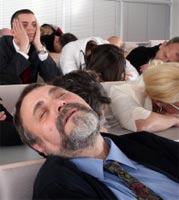The lecture to which I refer was hardly tedious or dull. It was a mixture of unique and fascinating first-hand experiences with penetrating and challenging insights borne of them. People across a wide spectrum of training, cultural baggage, and life situations heard the same lecture with equal rapt attention.
Elie Wiesel was the lecturer. The author of more than 50 books, Wiesel has been awarded the Presidential Medal of Freedom, the Nobel Peace Prize, and countless other major honors. He is best-known, of course, for his eloquent witness to the Holocaust. He continually raises the related questions of evil and violence versus goodness and hope.
"The Power of Language for Reconciliation" was Professor Wiesel's lecture topic. With candor about the limitations and failures of our efforts across time to preach, beg for, and negotiate understanding within the human community, he nevertheless sounded a positive note about the possibilities for realities as yet unrealized in the world.
As you might imagine in trying to visualize yourself under the sound of the voice of someone who speaks from personal memory about unfeeling and cruel rejection, the lecture carried special weight to those of us who were listening. He was not speaking abstractly. He was talking about his own experiences. He chronicled extensive losses of friends and family. He produced a list of sleights, wrongs, torments, and attempts at extermination that has driven others to blind rage on the one hand or to the despair of suicide on the other.
Perhaps the most impressive statement from the lecture - among so many memorable lines that will linger for a long time - was this one: "In every human being you encounter, there will be far more to celebrate than to denigrate."
They are a reinforcement of the words of another Jewish teacher of long ago: "Ask yourself what you want people to do for you, then grab the initiative and do it for them" (Matthew 7:12 MSG). Don't you want others to see the best in you? Believe the best about you? Celebrate rather than denigrate you?
It is a task so formidable that you dare not try it apart from God's strength.











Comments
Have thoughts on this article? Leave a comment